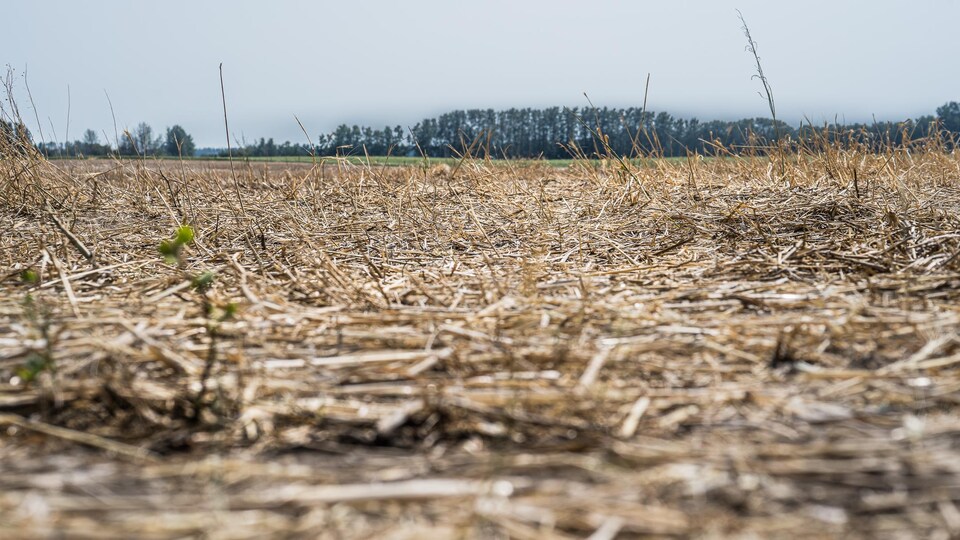Prices for wheat, canola and other grains were rising before the war in Ukraine, but Russia’s invasion accelerated the rise in the cost of staple foods.
Canola, wheat, oats, soybeans and flax: in Delmas in northwestern Saskatchewan, the seeds of farmer Martin Prince are not yet in the ground and the harvest is eagerly awaited.
The market needs what we have to produce and it encourages us to try to increase productionhe immediately admitted as he welcomed us into his home a few days before sowing season.
The cost of wheat and canola, for example, has doubled in the past two years. Other than that, to meet demand, the space for maneuvering by Canadian producers remains thin.
Martin Prince estimates he could increase his wheat production by nearly 10% this year.
This is because the seeds are planned months, even years in advance, and above all they must follow a cycle that is essential to the health of the soil.
” I might add a little more [ma production] oats at the expense of wheat, or vice versa, but I will not put canola instead of wheat because that is contrary to what I want to find in terms of good land management. “
In this context, it is impossible for Canada to compensate for its own projected production losses in Ukraine and Russia.
Almost 30% of the world’s wheat production comes from this region of the world. This is a large proportion of the global supply that may need to be replacedthe commemoration of Erin Gowriluk, director of Grain Growers of Canada, the national association that represents about 65,000 farmers.
While prices are attractive to farmers, costs are also in line with inflation.
The price of fertilizer has also doubled, easily reaching a quarter of a producer’s total cost.
Growers will be planting what is expected to be the best crops to produce these days, all with unprecedented levels of risk in the global market and weather.underlined Erin Gowriluk.
He recalls that many producers suffered one of their worst years last year due to the historic drought that hit the Prairies.
Unknown, more unknown
In Ukraine too, this is the season of seeds, but with the ongoing war, it is impossible to know how much production will be disrupted.
Whatever the yield there, Canadian producers will play an important role in world markets, said Jean-Philippe Gervais, vice-president and chief economist of Farm Credit Canada, a crown corporation that acts as a financial institution. .

According to him, after the production of 2022, there is an opportunity for Canada plays an important role in food security.
Luck may smile on the farmers here, but Mother Nature still needs to work together. After last year’s severe drought, farmers are not the only ones hoping for a normal weather.
” We need production, totally, at least average compared to previous years and higher to see some return of the price pendulum. But even there, it may not be enough, because at the beginning of the year there was already a shortage of some commodities. “
And markets may remain volatile in the future. Jean-Philippe Gervais could not rule out further increases in grain prices.
I can’t say at the moment that we have reached a certain stability, I also expect volatility in the next few months […] The weather is going to be very, very, very important in North Americahe pointed out.
Lessons to be learned?
On his farm, Martin Prince acknowledges that inflation hurts everyone, but he believes rising food prices can serve as a reminder to Canadians of the importance of agriculture in their lives.
In Canada […] we have been blessed with abundant production for many years […] Perhaps it’s time for us to return the value to these food expenses to eat properly and to honor it by perhaps reducing the waste that can be had.
War, drought, pandemic or inflation are all uncertainties that producers are used to facing.
There are hurdles every year, we don’t know in advance, but we know there will be, philosopher Martin Prince. In this case, it is the opportunity for consumers to feel the consequences of these unexpected events.
Source: Radio-Canada

